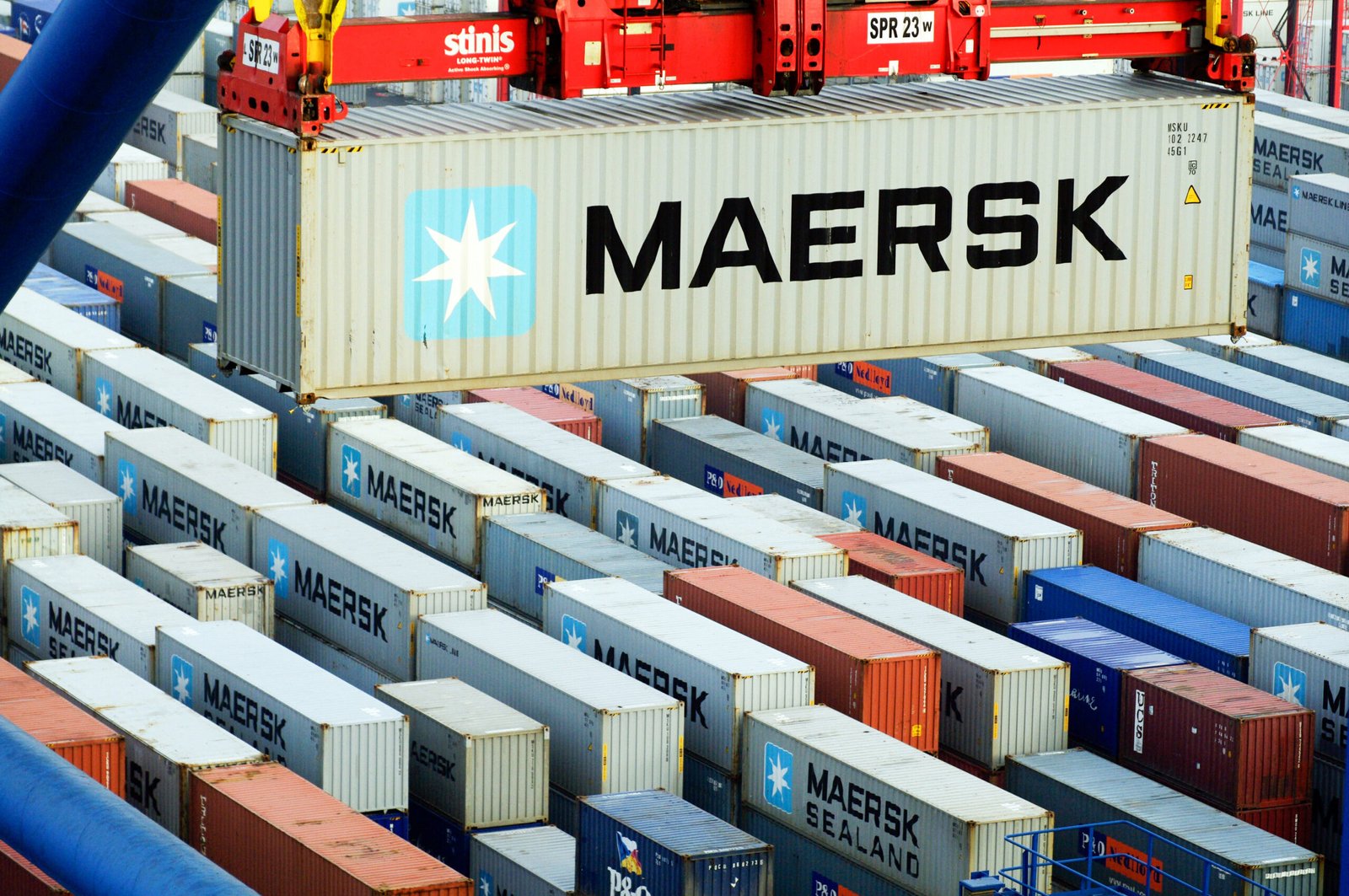In today’s rapidly evolving global economy, supply chains are becoming increasingly complex, and businesses are turning to artificial intelligence (AI) to optimize operations, improve efficiency, and gain a competitive edge. The integration of AI into supply chain solutions is transforming how companies manage inventory, logistics, demand forecasting, and decision-making processes. With its ability to analyze vast amounts of data, predict trends, and automate tasks, AI is revolutionizing the traditional supply chain model.
This article explores how AI is being integrated into supply chain solutions, the benefits it brings, and real-world applications that are driving innovation across industries.
1. AI-Powered Demand Forecasting
One of the most significant challenges in supply chain management is accurately predicting demand. Traditional demand forecasting methods rely on historical data and often fail to account for rapid market changes or unforeseen events. AI, with its ability to analyze real-time data and recognize patterns, is helping companies make more accurate predictions about future demand.
a) Real-Time Data Analysis
AI-powered demand forecasting tools can analyze large datasets from multiple sources, including sales trends, weather patterns, economic indicators, and social media activity, to provide more accurate forecasts. These tools can detect changes in customer behavior and adjust forecasts in real-time, helping companies respond more effectively to shifting market conditions.
For example, AI-powered platforms used by Walmart and Amazon continuously gather and analyze sales data, customer preferences, and other external factors to optimize inventory levels, ensuring that the right products are in stock when and where they are needed.
b) Predictive Analytics for Inventory Management
AI can also enhance inventory management by predicting which products will be in demand and optimizing stock levels accordingly. By using predictive analytics, companies can reduce overstocking and understocking, minimizing waste and improving profitability. This is particularly valuable for industries with complex supply chains, such as retail, manufacturing, and automotive.
Unilever uses AI-based demand forecasting to optimize its inventory and distribution processes. By integrating AI into its supply chain, Unilever has improved its demand accuracy, leading to reduced costs and enhanced service levels across its global operations.
2. AI-Driven Supply Chain Automation
Automation is at the heart of AI’s impact on supply chain solutions. By automating routine tasks and processes, AI frees up human workers to focus on higher-value activities while improving efficiency and reducing errors.
a) Autonomous Warehousing and Robotics
AI is playing a pivotal role in the development of autonomous warehouses and the use of robotics for inventory management. Robots powered by AI can handle tasks such as sorting, packing, and shipping products, dramatically reducing the time it takes to fulfill orders. These robots can operate 24/7, significantly increasing productivity and reducing labor costs.
For example, Amazon’s fulfillment centers use AI-powered robots to transport items across its warehouses, optimizing the picking and packing process. These robots work alongside human workers, improving overall efficiency and allowing Amazon to process orders faster.
b) Automated Procurement and Supplier Management
AI is also transforming the procurement process by automating supplier selection, contract management, and purchasing decisions. AI-powered systems can analyze supplier performance, pricing, and delivery times to identify the best suppliers and optimize procurement strategies.
In supply chain procurement, AI tools such as SAP Ariba and IBM Watson Supply Chain automate tasks like purchase order creation, invoice processing, and supplier risk management. These tools help organizations streamline procurement operations, reduce costs, and improve supplier relationships.

3. Optimizing Logistics and Transportation with AI
The logistics and transportation sector is one of the most critical and complex components of supply chain management. AI is being integrated into logistics solutions to optimize route planning, reduce delivery times, and enhance fleet management.
a) AI-Powered Route Optimization
AI algorithms can analyze real-time traffic data, weather conditions, and delivery schedules to find the most efficient routes for transportation. By optimizing routes, AI reduces fuel consumption, delivery times, and transportation costs. Companies like UPS and DHL are using AI to optimize their delivery networks, ensuring that goods are transported quickly and efficiently.
For example, UPS’s Orion system, powered by AI, helps drivers determine the most efficient delivery routes, reducing miles driven and saving the company millions of dollars in fuel costs each year. This system continually updates based on new data, such as weather and traffic conditions, ensuring optimal performance.
b) Predictive Maintenance for Fleet Management
AI is also transforming fleet management through predictive maintenance. By analyzing data from vehicle sensors, AI can predict when maintenance is required and identify potential equipment failures before they occur. This helps companies reduce downtime, lower maintenance costs, and extend the lifespan of their fleets.
Maersk, one of the world’s largest shipping companies, uses AI-based predictive maintenance systems to monitor its fleet of ships. By analyzing data from onboard sensors, Maersk can detect potential issues with engines, cargo handling systems, and other equipment, allowing for proactive maintenance and reducing the risk of breakdowns during transit.
4. Enhancing Supply Chain Visibility and Risk Management
Supply chain visibility is essential for managing risks and ensuring that goods flow smoothly from suppliers to customers. AI-powered platforms provide real-time visibility into supply chain operations, enabling companies to track products, monitor performance, and identify potential disruptions before they escalate.
a) Real-Time Tracking and Monitoring
AI-driven supply chain solutions offer real-time tracking of shipments and inventory levels. Companies can monitor goods as they move through the supply chain, from the moment they leave the supplier to when they reach the customer. This enhanced visibility helps businesses manage their supply chains more effectively and make informed decisions to prevent delays.
FedEx uses AI technology to track shipments in real-time, providing customers with up-to-date information on delivery times. AI-driven systems help FedEx detect potential disruptions, such as weather-related delays or customs issues, and take proactive measures to mitigate risks.
b) AI for Risk Management and Disruption Detection
AI is helping companies manage supply chain risks by identifying potential disruptions, such as natural disasters, political instability, or supplier issues. By analyzing historical data and real-time information, AI can predict and alert businesses to possible disruptions before they happen, allowing companies to implement contingency plans and mitigate the impact.
IBM Watson Supply Chain uses AI to predict supply chain disruptions and provide recommendations on how to address them. This AI system analyzes vast amounts of data from news sources, weather reports, and geopolitical events to help companies identify and respond to risks, ensuring supply chain continuity.

5. AI and Sustainability in Supply Chain Solutions
Sustainability has become a top priority for businesses, and AI is helping companies reduce their environmental impact by optimizing supply chain processes. AI can analyze energy usage, optimize transportation routes, and identify opportunities to reduce waste, enabling companies to build more sustainable supply chains.
a) Reducing Carbon Footprint
AI-driven solutions help companies reduce their carbon footprint by optimizing transportation routes, minimizing fuel consumption, and improving energy efficiency. By using AI to streamline operations, companies can significantly reduce their environmental impact while cutting costs.
For example, Unilever uses AI to track and manage its environmental footprint across its supply chain. The company’s AI systems help optimize energy usage, monitor waste production, and reduce carbon emissions in its logistics operations, making Unilever’s supply chain more sustainable.
b) Circular Supply Chain Models
AI is also enabling companies to adopt circular supply chain models, which focus on reducing waste and recycling materials. By using AI to track the lifecycle of products, companies can identify opportunities to reuse materials, repurpose products, and reduce waste, contributing to a more sustainable economy.IKEA is incorporating AI into its supply chain to create a circular model for its products. The company uses AI to track materials throughout the supply chain, ensuring that products are designed for reuse and recycling, reducing waste, and promoting sustainability.
6. The Future of AI in Supply Chain Management
As AI continues to evolve, its integration into supply chain solutions will become even more sophisticated, transforming the way businesses operate. Future advancements in AI-powered decision-making, robotic process automation (RPA), and machine learning will allow companies to make supply chains more autonomous, efficient, and resilient.
Emerging trends such as AI-powered supply chain digital twins—virtual models of physical supply chains—will provide businesses with even greater visibility and control over their operations. These digital twins will allow companies to simulate supply chain scenarios, test different strategies, and optimize performance in real-time.
Image Courtesy Notice
At The Storiez, we value the efforts of photographers, artists, and content creators. The images featured in our articles are sourced from various news portals and online websites. We strive to ensure proper credit is given wherever possible. If you are the rightful owner of any image used here and would like to request its removal or correct attribution, please feel free to contact us. We respect intellectual property rights and aim to address concerns promptly.

